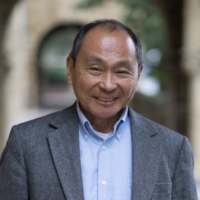
Key Quote
“We started down this path of technological development hundreds of years ago,” Fukuyama concludes. “Yes, technology has created many challenges over the years—including for our democracy—but history shows that tech-driven problems often have tech-driven solutions. Just imagine if we’d given up on the radio because it helped fuel the rise of Hitler or the television because it sustained Stalin’s propaganda machine. We confronted those challenges and we’ll confront today’s challenges too.”
Few contemporary scholars have achieved the same level of prominence or name recognition as Francis Fukuyama. One of his most famous books contemplated the future of democracy at a crucial moment in history following the collapse of communism. Now, with democracy at a new crossroads vis-à-vis technology, Fukuyama is focused on thoughtful solutions like his signature ‘middleware’ concept, which is explained further below. These and other ideas, he believes, can harness the potential of technology to not only address democracy’s challenges but also create new opportunities.
Fukuyama spends a lot of time thinking about the future of democratic societies and institutions. In fact, it’s something to which he’s dedicated much of his career. But while past challenges to democracy, such as communism or fascism, could be spotted clearly and opposed in strong moral terms—today, things aren’t always so black and white. So-called threats can actually become opportunities, and vice versa, which is why Fukuyama finds the current conversation around technology and democracy to be unhelpfully two-dimensional. “Many fret about the potential of digital technology and social media to undermine democracy, but the truth is that technology can hurt democracy or it can help it,” explains Fukuyama, a scholar at Stanford University. “It can be used by bad actors for anti-democratic purposes or by good actors for pro-democratic ones.”
On the one hand, he points to examples like China. During the 1990s and early 2000s, Western policymakers often argued that internet access would help drive a gradual opening of Chinese society and weaken the Communist Party’s grip on power. While technology has certainly helped liberalize the country in some ways it has also been exploited by the country’s ruling elite in heavy-handed and often disturbing ones, such as building the Great Firewall or cracking down on democratic dissidents. “President Clinton famously said that trying to control the internet was like trying to nail Jell-O to a wall,” Fukuyama recalls. “But it turned out the Chinese regime was actually quite capable of that. It had the scale and the technological ability to basically build its own closed internet and shut China off from the rest of the world.”
Yet, while the actions of autocrats and trolls may dominate headlines in Western media, there are also many examples of how technology can help fortify democracy. For instance, technology has helped Ukraine defend its democracy in the face of Russian aggression. “At the beginning of Russia’s invasion,” notes Fukuyama, “everyone thought the Russians had become masters of social media, and that this would be an advantage they would press in the course of the war.” Instead, it’s the Ukrainians who have used social media far more effectively than their Russian counterparts, and it has helped build enormous global sympathy for their cause. Meanwhile, Fukuyama continues, the investigative group Bellingcat—founded by British journalist Eliot Higgins—has harnessed digital technology to expose everything from Russian war crimes and corruption scandals to identifying a secretive group of Russian military engineers involved in missile strikes on Ukraine.
What about the impact of social media on democracy in Western societies? “The way I understand the problem, it really is related to the scale of current social media platforms,” says Fukuyama. “The largest actors have an extraordinary ability to shape political discourse, either by amplifying certain voices or by silencing them. It really is an unprecedented power that hasn’t been exercised by any prior form of media.” In other words, the core problem in Fukuyama’s telling is less ‘misinformation’ or ‘hate speech’—forms of speech, however objectionable, that he reminds us are protected by the First Amendment—and more the inorganic amplification or silencing of certain voices.
But how to solve it?
Fukuyama joined with researchers Barak Richman, Ashish Goel, Roberta Katz, Doug Melamed, and Marietje Schaake to explore smart ways to attack this issue. The group published a report that proposed what they called a “middleware” solution: in other words, creating a robust ecosystem of private content-curation firms to serve as digital intermediaries between consumers and dominant social media platforms.
Middleware companies would “allow consumers to shape their feeds and influence the algorithms that those dominant platforms currently employ,” the report explained. This would help social-media users screen and filter content based on their unique tastes and interests. For example, middleware could provide fact-checking services, rank articles by various criteria, or adjust news results to match certain preferences. The curation firms would all be interconnected with the digital platforms, so people could access those platforms through middleware and vice versa. By fostering a competitive market in content curation, middleware would give users “greater choice and control over the kind of information they see,” says Fukuyama, while hopefully also pre-empting the need for more heavy-handed government regulation. Essentially, it would take much of the editorial power currently wielded by a handful of opaque tech giants and transfer it to a diverse collection of more transparent and responsive intermediaries. “This, of course, is good for democracy because it puts more power back in the hands of consumers and promotes a more trusted discourse,” Fukuyama explains.
Technological innovation has obviously propelled human progress for centuries. And while it has generated some unexpected negative consequences, Fukuyama observes, it has also been the source of solutions to those challenges. Moreover, he notes, it sometimes takes just one technological innovation to completely change the course of society—to positively shift the paradigm when we might otherwise feel stuck. He points to the potential of a breakthrough like nuclear fusion as one example. “This is something that was considered a pipe dream until just a few years ago. Now, it appears within reach,” Fukuyama explains. Fusion, the same process that powers the sun, would allow for the production of nearly limitless amounts of clean energy. “Imagine what this could do for divisive debates over climate, energy, and the economy—not to mention the well-being of our society in general—it could change things almost overnight.” And that, he notes, is just one example of the power of technology to continue positively impacting our democracy and our future. It doesn’t mean that technologies like these don’t have drawbacks: they do.
It’s how we approach them that matters—and that, for Fukuyama, is the point.
“We started down this path of technological development hundreds of years ago,” Fukuyama concludes. “Yes, technology has created many challenges over the years—including for our democracy—but history shows that tech-driven problems often have tech-driven solutions. Just imagine if we’d given up on the radio because it helped fuel the rise of Hitler or the television because it sustained Stalin’s propaganda machine. We confronted those challenges and we’ll confront today’s challenges too.”
Key Takeaways
- Few contemporary scholars have achieved the same level of prominence or name recognition as Francis Fukuyama. His 1992 book, The End of History and the Last Man, contemplated the future of democracy at a crucial moment in history following the collapse of communism. Now, with democracy at a new crossroads vis-à-vis technology, Fukuyama is focused on thoughtful solutions like his signature “middleware” concept
- Fukuyama spends a lot of time thinking about the future of democratic societies and institutions. In fact, it’s something he’s dedicated much of his career to. But while past challenges to democracy, such as communism or fascism, could be spotted clearly and opposed in strong moral terms—today, things aren’t always so black and white. So-called threats can actually become opportunities, and vice versa, which is why Fukuyama finds the current conversation around technology and democracy to be unhelpfully two-dimensional
- Technological innovation has obviously propelled human progress for centuries. And while it has generated some unexpected negative consequences, Fukuyama observes, it has also been the source of solutions to those challenges. Moreover, he notes, it sometimes takes just one technological innovation to completely change the course of society—to positively shift the paradigm when we might otherwise feel stuck.

